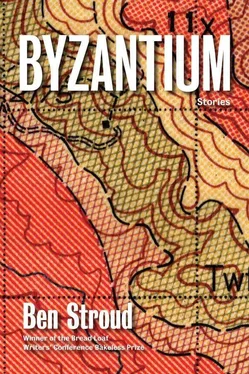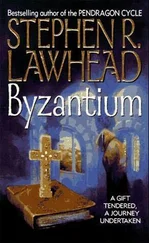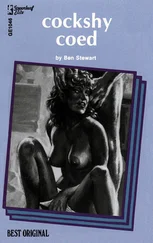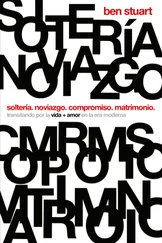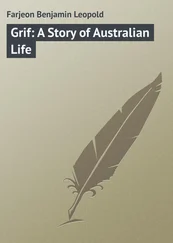The next morning Beatriz was still there, asleep and curled against him. With care he negotiated his way over her and out of the bed, then went to the door and cleared his bladder. When he turned around she was sitting up, yawning with arms stretched, and he tried to decide if she was beautiful. “Read me some of those things you brought from the city,” she said when she finished her yawn. He grabbed the satchel of books and went to the bed. Whenever he stopped, pausing after a mascarada song or an account of a sea battle with the English — all the stuff and trash of life for which he had no taste — she said, More, more. She dug herself into him with her backside, pulled his arm over her, and he indulged a fantasy of taking her back to Mexico, presenting her to the viceroy as a marvel, a wild woman tamed. He would live with her in a fine palace bought with his earnings from the mine; though dressed in silk, she would keep her wildness and bear him a string of cubs. Others would speak of him as the man who had found Tayopa in the wastes, who had rescued a near savage from the lands beyond the frontier, and he would be changed — no longer the man who had let ten years silt away into nothing, the man who had buried himself in a lead coffin and joined himself with the dead. His mouth tired of so much reading and he begged a respite. Beatriz said she would allow it, and as he lay back she told him scraps of her life: that her mother sold her for a year’s worth of meat, that she had begged her husband not to take her from their village outside Querétaro, that he had beaten her when the midwife pulled a daughter, stillborn, from her. They had been lured here by the Jesuits, she said, who had told them they were supplying missions in the far north and forbade them to leave their ranch. She had hidden in her cave when the Yaquis had come, had refused to weep when she found her husband and the other ranchers slaughtered. As she spoke she shifted at random to whispers, covered her eyes, made crosses on Mota’s arm — traces of the small but important something in her that had long been rattled loose. After, she fed him a mash of corn and dried meat. When he mentioned the city to her, said he wanted to take her there, she answered that she wanted to go.
Two days later, they heard the shuffling hoofbeats of a horse in trot. Mota was in the bed, resting his leg, and Beatriz was lying beside him. She startled, and he held her. The hoofbeats drew closer, and soon after they stopped Fernando appeared in the doorway and looked down at them. “We’ve found it,” he said.
FERNANDO HAD GRINNED AT THE WOMAN, and at Mota’s insistence they bring her with them. Such a demand, Mota knew, was much unlike the self he had long presented his fellows. But Fernando quickly swept the grin away and said, “Of course.” When they left, Mota and Beatriz sat atop Fernando’s horse while Fernando walked it and told Mota of the mine. It was a three days’ ride away, he said, and they hadn’t actually seen it — as soon as Father Pascual identified the canyon they’d turned around, believing Mota, as inspector, should be with them. But the ex-Jesuit assured him there could be no doubt. He’d recognized the country, and the horn’s echo was unmistakable.
The others were waiting for Mota at a camp not far from the canyon. They betrayed the same muted astonishment at the woman’s presence as Fernando had, but otherwise kept their distance from her and avoided her gaze, as if fearing she might be ill luck. Once Mota was helped off the horse Baltazar poked his fingers inside the splint. “Better,” he pronounced. “But it’ll need at least six more weeks.” Meanwhile, El Sepo launched into his own version of how they found the mine, telling how he had danced a quick jig and Father Pascual had refused to smile. Mota seemed to miss every other word. Night had fallen, and on the far side of the fire, where its light bled into darkness, Beatriz was bedding down, away from them. The distance ached. When El Sepo finished his story, Baltazar leaned over to Mota and said, “I bet she was hungry for it, she ride you cross-eyed?”
TWO DAYS LATER they came to a shelf of rock beneath which the country flattened. Mota and Beatriz had shared a mule, she mounted in front of him as he kept his hands on the reins, his arms around her. The country from atop the shelf of rock looked no different from anywhere else they’d ridden through, but here they stopped and Father Pascual took his horn from his pack and blew. The first echo was faint, but the second came back louder than the original blast.
“Tayopa,” Father Pascual said, pointing to a break in the valley’s far side. The last echo had come from there.
They crossed the valley, halting at a stream that purled out of the break, which, Mota saw now, was the mouth of a narrow barranca. Alongside the stream led a trail covered with broken shale, disappearing as it bent. A breeze coursed out of the barranca ’s mouth, fluttered over Mota’s face. In front of him Beatriz shifted as she cursed the mule’s backbone. They rode in.
After forty varas a red shoulder of rock forced path and stream into a tight embrace, and once they eased around the shoulder they came to a round, two-story building.
“The first guardhouse,” Father Pascual said.
Past the guardhouse the trail and the stream twisted north. The walls of rock began to widen, and the bunchgrass and the madroños, which had granted the narrow path a dappled green light, started to thin, giving way to ropy thornbushes. Then the trail swiftly mounted several layers of rock, and Mota and the others found themselves in the wide, barren bowl of a box canyon — Tayopa. In the middle of the bowl, attached to the roofless skeleton of a church, stood a bell tower, its sides licked with soot. Machinery from a smelting works lay broken and half-buried, and patterns of mud and stone rubble were scattered between the bell tower and a circle of kilns. Beyond loomed the dark piles of slag, and all around, in the basin’s walls, watched the black, hollowed eyes that were the entrances to the mines.
Mota tightened his grip on Beatriz — she had shuddered, at what he wasn’t sure — and took in the brown and red slope of the far ridge. The air smelled of dried, flaking dirt, and the wind coming over the ridge carried an empty sound. Mota closed his ears to it, buried his nose in Beatriz’s matted hair, erected once more in his mind the vision of their return. But this did nothing to still the shadow that had stirred once more in his heart.
With the aid of his crutch, he slipped down from the mule. They would be weeks, assaying samples from the mines and the slag heaps, logging troves, scouting new routes from the mine. The sooner they started, the sooner they could leave.
IHAD BEEN IN WIESBADEN FOR TWO WEEKS. This was in October 2009. The German semester hadn’t started yet, and so neither had my job, and after a first week surrendered to various bureaucracies I was spending a chain of sunny days exploring. On the third such day, after taking the little yellow funicular up the Neroberg and hiking down, I was walking in the pedestrian-zoned city center and had paused to look through the window of the gummy candy store. Thoughts of a present shipped home to my nephews took breath then perished (the postage, the hassle) before somebody behind me said, “Holy shit,” and grabbed me by the arm.
The words with their three flat American syllables leapt at me from the German public’s constant guttural hum. I turned and a short, nicely thick-bodied woman with light green eyes and rusted blond hair was looking up at me, mouth hanging open in a display of shock. My memory fumbled, then immediately I had a flash of her at fifteen: studded leather choker around her neck, bottle of cherry soda constantly stowed in her backpack, Mod Podged collages of ads from Spin magazine covering her folders. Amy Heathcock. She’d been two years behind me in high school, and we’d been members of separate outcast cliques that shared the hallway outside the band room for standing around in the mornings before class. Once we’d gone on a date, and later, when I was home from college, I ran into her at the Corny Dog in the Longview Mall, where she dipped hot dogs in batter. But by the time she clutched my arm in Langgasse I’d forgotten she existed.
Читать дальше
